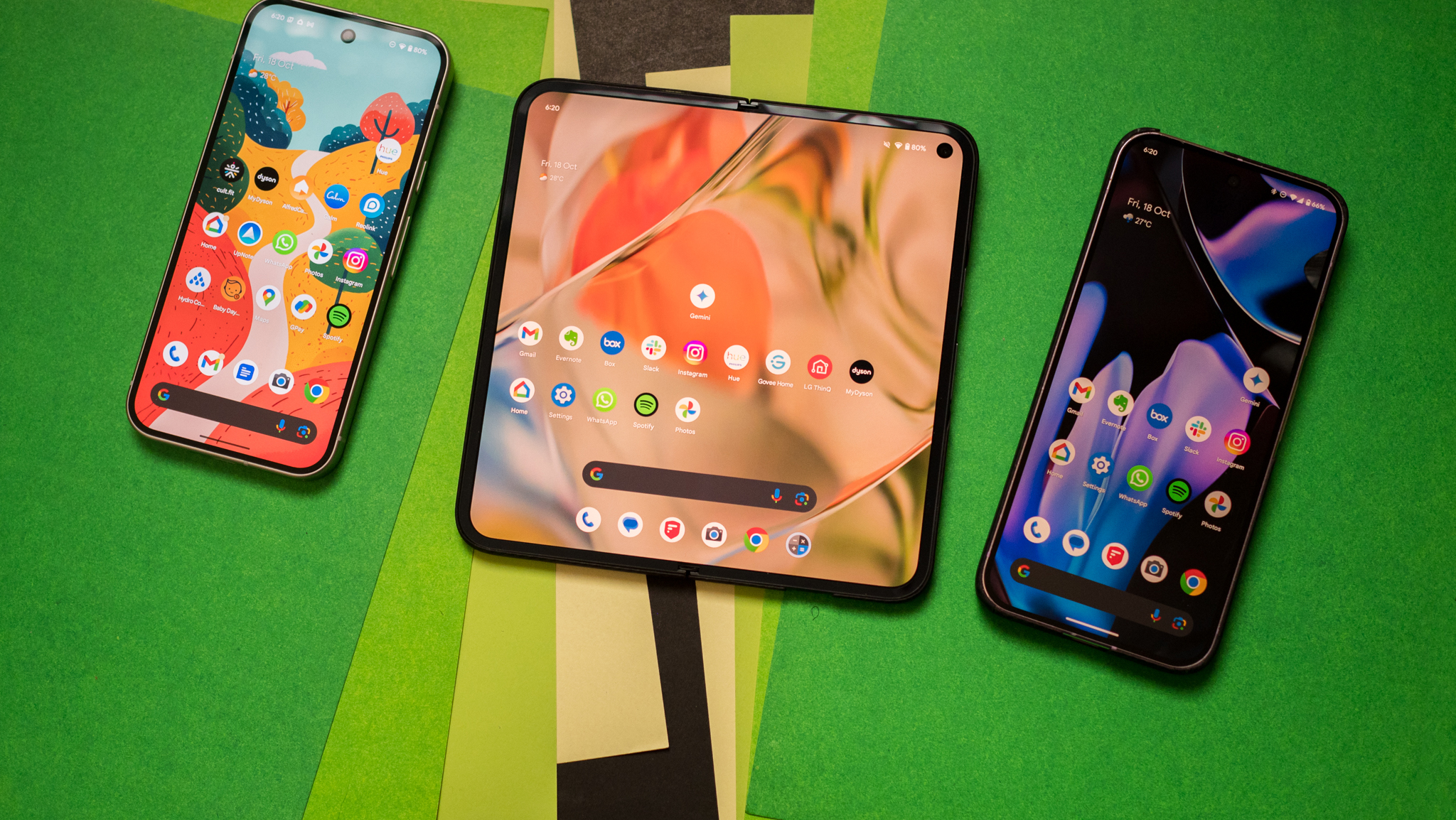The Galaxy Ring's best chance of success is to steal the Apple Ring's customers
Apple will have a much harder time making its Apple Ring as essential as its Apple Watch, leaving a gap for Samsung to strike.
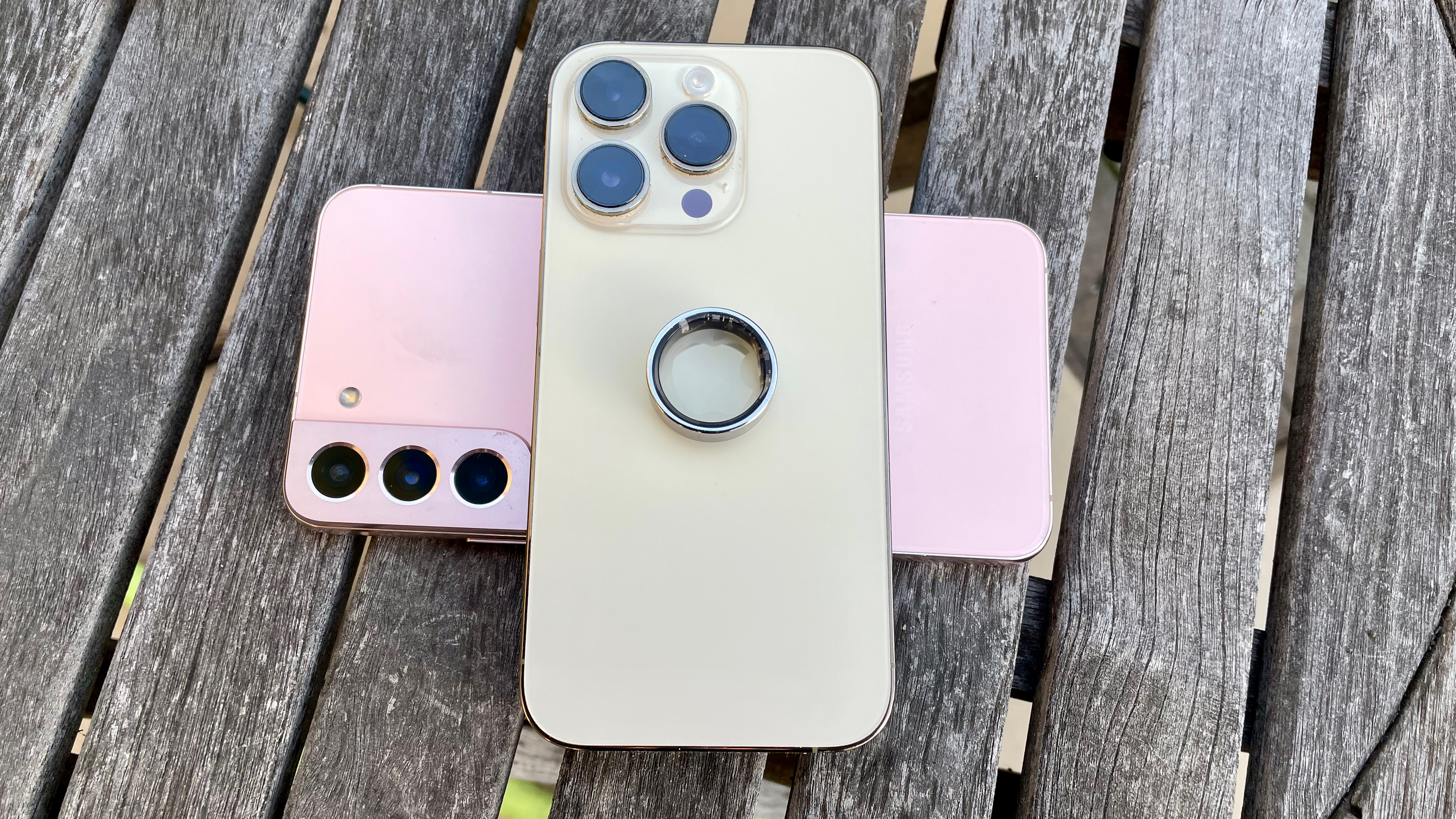
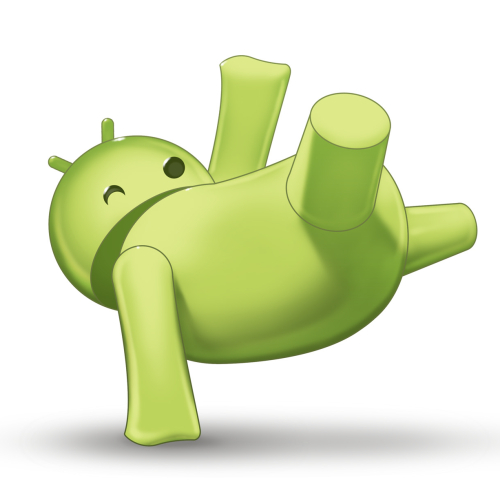
In this weekly column, Android Central Fitness Editor Michael Hicks talks about the world of wearables, apps, and fitness tech related to running and health, in his quest to get faster and more fit.
After Samsung launches its Galaxy Ring later this year, Apple allegedly wants to be hot on its heels, rushing out a competing Apple Ring. Before that happens, Samsung has one obvious strategy that would help the Galaxy Ring's chances at widespread success: Make it available for iOS customers, not just Android or Galaxy phone owners.
Before Samsung's pivot from Tizen to Wear OS, it regularly made its wearables work on iPhones. Its Samsung Gears, Galaxy Fits, Galaxy Watch Active 2, and Galaxy Watch 3 all worked with the Samsung Health iOS app.
Not many people use Galaxy tech with iPhones, though, because Apple strategically cripples non-watchOS wearables in areas like consistent phone connectivity, voice assistant support, on-wrist replies, and notifications. As Samsung Director of Global Product Planning Junho Park told Techradar, his company abandoned iOS support because it "could not deliver the same level of experience with Android and iOS."
But here's the thing: Apple can make smart tech dumber, but it cannot limit the health data that a standard Bluetooth health tracker can provide. Smart rings like the Oura Ring Gen 3 have already become popular with iPhone users who don't like wearing Apple Watches for sleep tracking because they provide workout data and real-time health insights without needing anything more complicated.
The Galaxy Ring could beat the Apple Ring to the punch
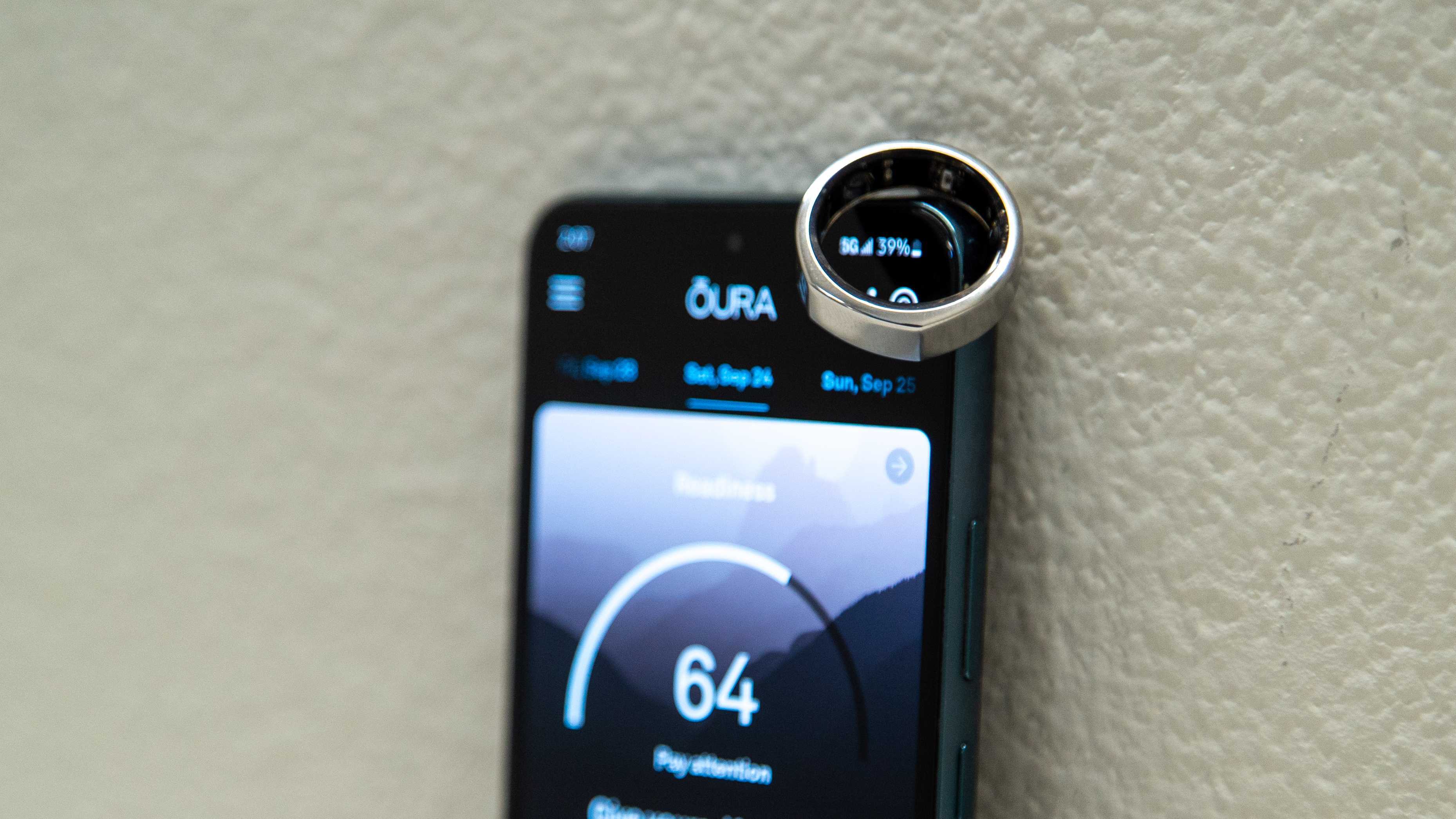
Electronic Times reported a quote from an industry analyst that, based on Apple's surge of smart ring patents in recent years, an "advanced development for commercialization appears to be imminent."
However, the analyst doesn't provide a specific timeline, and the Apple Ring certainly wouldn't arrive before the Galaxy Ring in the second half of 2024. More importantly, his speculation is based on patents, not any insider information.
Consider how Apple started envisioning the Vision Pro in 2015 or how it apparently wants to launch its first foldable phone in 2026 (per Android Authority). Apple consistently waits to launch products or features well after its rivals, whether out of lethargic complacency that its customers will wait for their version of everything or a desire for rigorous quality.
Be an expert in 5 minutes
Get the latest news from Android Central, your trusted companion in the world of Android
Whenever the Apple Ring does arrive, the patents themselves sound intriguing, if gimmicky. iMore writes about how the smart ring could control other Apple devices with gestures, including the Vision Pro, while AppleInsider says that the ring could have an outer touch panel or rotating layer.
Apple wants these concepts to work because its interconnected device strategy is the key to its success. But I suspect that most people care more about a stylish, compact smart ring that offers useful health data, not gesture controls or a finicky ring-sized touchpad.
Plus, even if Apple rushes out its smart ring, I suspect it won't arrive until 2025 at the very earliest. That gives Samsung the window it needs to make a real foothold in the smart ring market.
How the Galaxy Ring can succeed on an iPhone
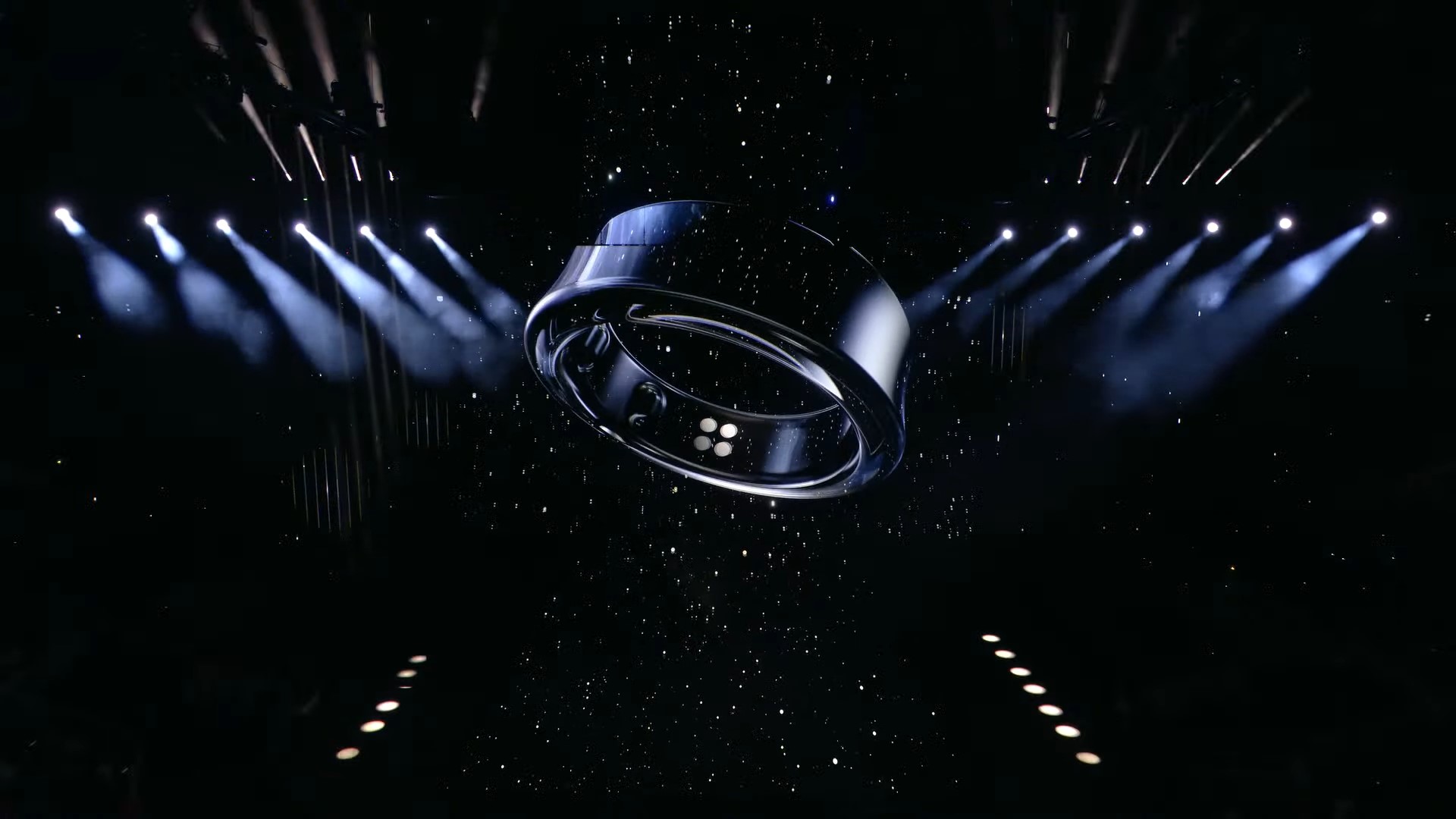
Considering Samsung lost the top spot in smartphone sales to Apple last year, artificially cutting yourself off from a growing user base is a bad idea. Samsung will also want to target the U.S. market in particular, where Apple sold 64% of all smartphones last quarter compared to Samsung's 18% (per Counterpoint).
Even if Samsung makes many of the best Android phones and has plenty of loyal customers, many Android fans either won't see the Galaxy Ring as essential or prefer other brands like OPPO or Pixel. Targeting iPhone owners with enough disposable income to buy both a smartwatch and a smart ring is the obvious solution.
So, how does Samsung reach across the metaphorical aisle? It starts by revamping its Samsung Health iOS app — which has only received two bug-fixing updates since 2020 — to get all of the tricks its Android counterpart has added over the last few years while also ensuring that it can send all of the Galaxy Ring's data to Apple Health.
Since Samsung will probably have Android users manage their Galaxy Ring settings in the Galaxy Wearable app, it'll need to provide comparable controls to iOS users without restrictions.
With the Galaxy Watch 6, Samsung made the frustrating decision to reserve its ECG readings to the Samsung Health Monitor app, reserved for Galaxy phones. It must resist the impulse to make the Galaxy Ring better on Android. Withholding features will convince non-Samsung fans that the Galaxy Ring isn't for them.
And lastly, Samsung should make it clear in its marketing push that the Galaxy Ring works on iOS. The ads can snarkily mention that it's the best smart ring for both Android and iPhone or overtly say that it'll provide more accurate health data than an Apple Watch can provide. But it needs to make Galaxy Ring a universal device in people's minds, removed from the usual Samsung-Android association.
Samsung may decide that the possible benefits of Galaxy Ring/ iPhone connectivity are offset by the massive hurdles of making this odd coupling work. Or the idea may not even occur to Samsung executives, who may see the Galaxy Ring as just another device in their Galaxy "family" of devices, not a true standalone product.
I hope Samsung proves me wrong. And even though there's no way in hell Apple would do this, I would love for the Apple Ring to work on Android phones. Because, unlike smartwatches, smart rings don't need gimmicks. They just need hyper-accurate health data and style. That should cross the usual tech boundaries, with people having multiple options for which to buy no matter which smartphone they have.

Michael is Android Central's resident expert on wearables and fitness. Before joining Android Central, he freelanced for years at Techradar, Wareable, Windows Central, and Digital Trends. Channeling his love of running, he established himself as an expert on fitness watches, testing and reviewing models from Garmin, Fitbit, Samsung, Apple, COROS, Polar, Amazfit, Suunto, and more.
You must confirm your public display name before commenting
Please logout and then login again, you will then be prompted to enter your display name.
